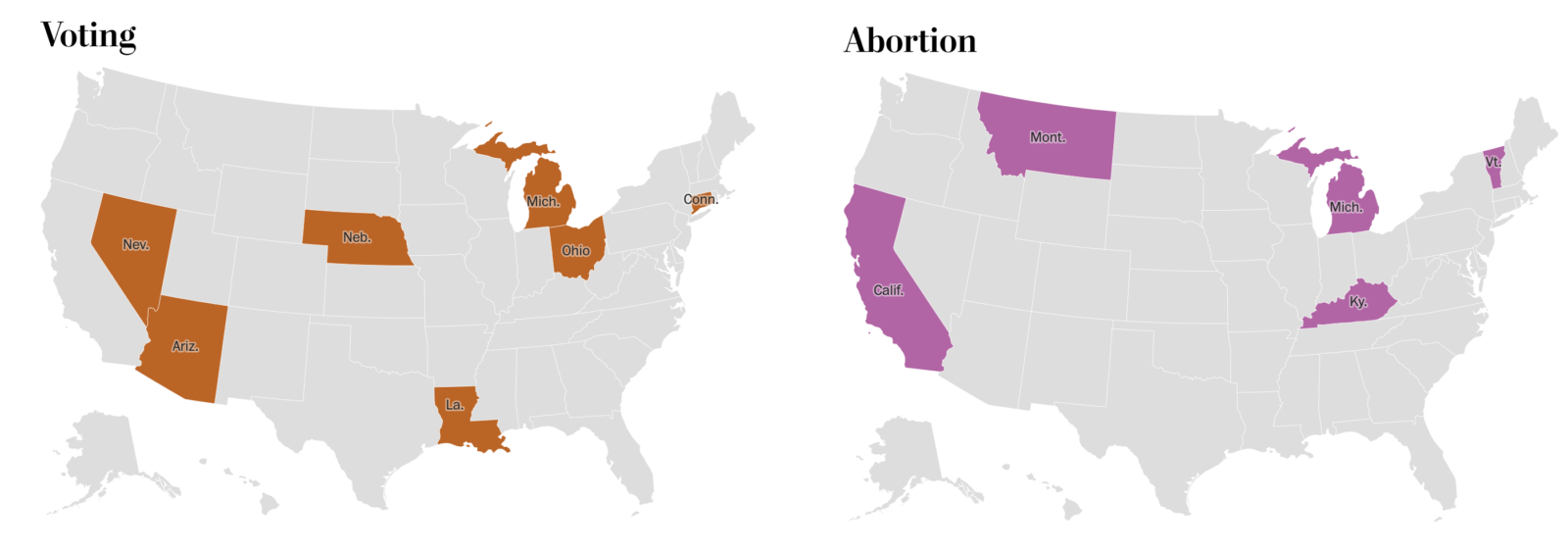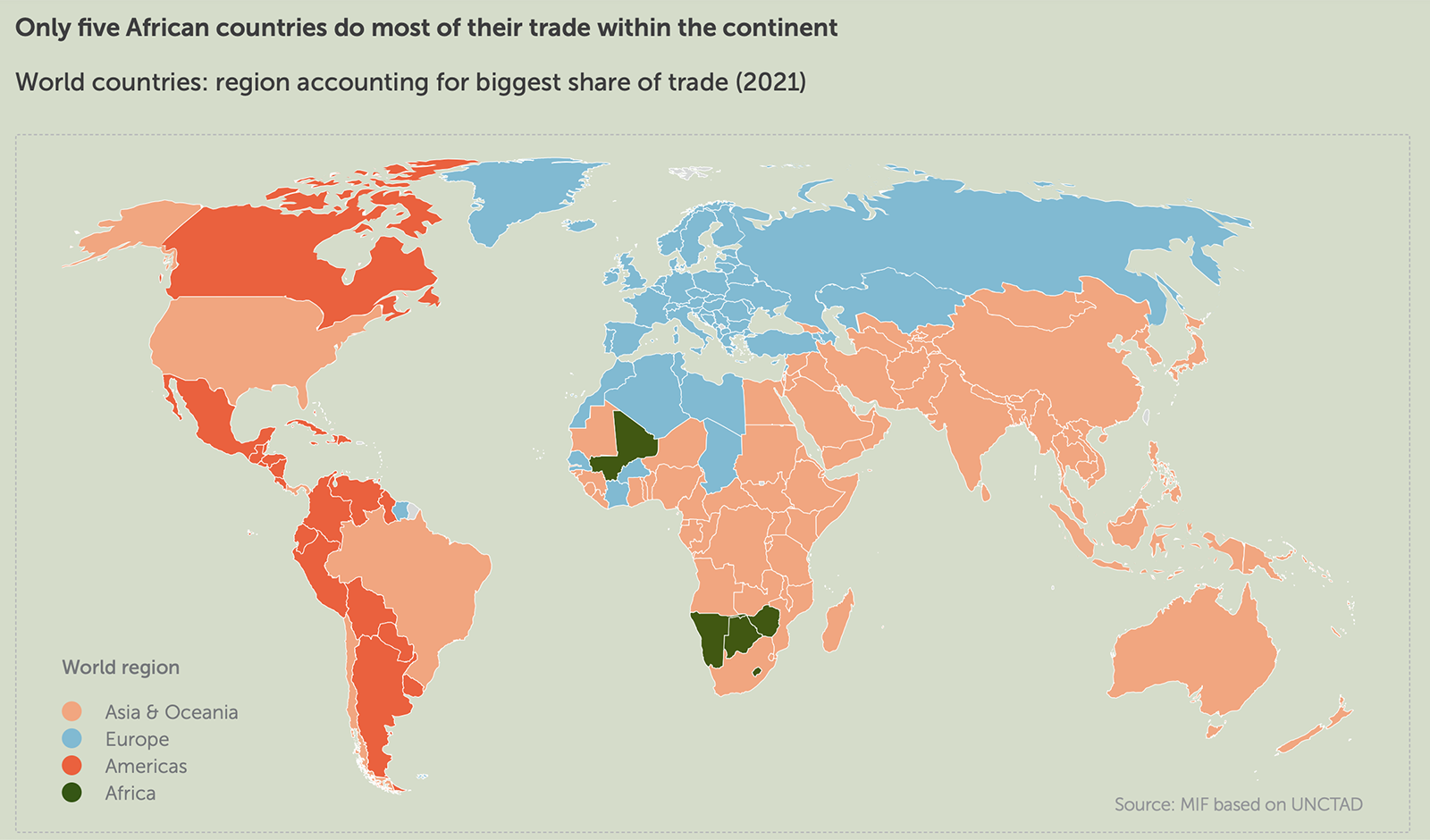Ballot Measures Reveal the Importance of Civil Rights for Americans

Source: The Washington Post
During the recent U.S. midterm elections, Americans voted on a wide range of ballot measures in their states on issues such as abortion, voting rights, and slavery in prisons.
The Supreme Court’s decision to overturn Roe v. Wade put abortion on a number of ballot measures. Five states — California, Kentucky, Michigan, Montana, and Vermont — chose to support abortion access. In California, Michigan, and Vermont, voters added the right to an abortion to their state constitutions. In Kentucky and Montana, voters rejected ballot measures that would have further restricted abortion — despite having Republican-led legislatures in both states.
The widespread — and false — claims of voter fraud in previous elections prompted intense scrutiny of voting rights. Voters in four out of six states expanded their voting laws, or rejected voting restrictions. Connecticut, Michigan, and Arizona expanded voting access, while Nevada opened primaries to all voters. Nebraska and Ohio limited voting access.
A number of states voted to remove all language from their constitutions that allowed slavery to be used as a punishment for a crime. The U.S. Constitution technically still permits slavery to be used as a punishment, but Alabama, Oregon, Tennessee, and Vermont voted to ban slavery in all contexts, although Louisiana voted against a ban.





